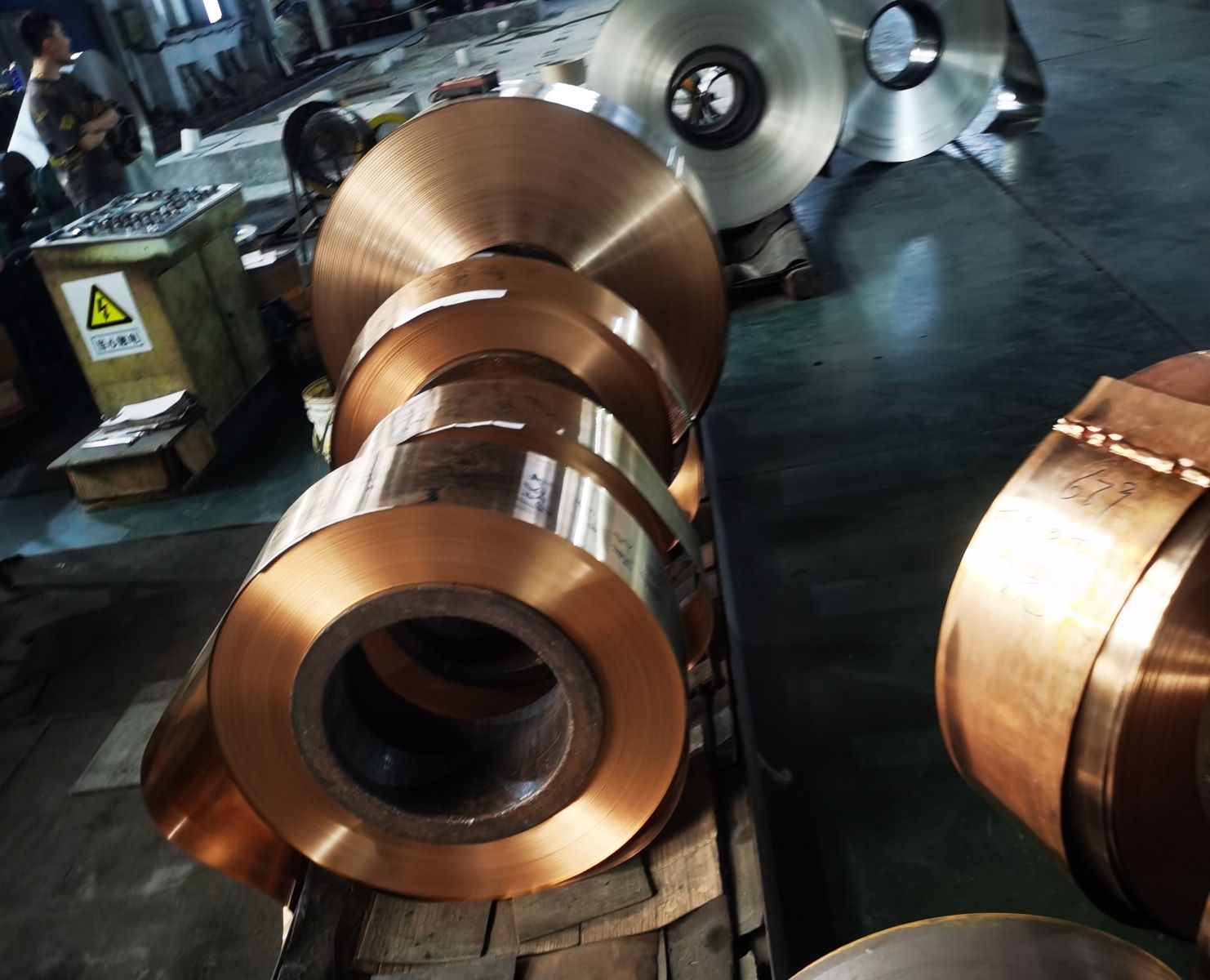
Beryllium copper is a fascinating alloy that combines the strength of copper with the resilience of beryllium. Known for its unique properties, this metal is used in various industries, from electronics to aerospace. Why is beryllium copper so special? It offers high electrical conductivity, excellent corrosion resistance, and remarkable durability. This makes it ideal for applications requiring both strength and flexibility. Additionally, beryllium copper is non-magnetic, which is crucial for certain technical applications. Whether you're a student, engineer, or just curious, understanding the benefits and uses of this alloy can be incredibly enlightening. Let's dive into 50 intriguing facts about beryllium copper that highlight its versatility and importance.
Key Takeaways:
- Beryllium copper is a special metal blend with high strength, non-magnetic properties, and excellent conductivity, making it valuable in electronics, aerospace, and other industries.
- While beryllium copper offers unique benefits, it's important to handle it with care due to potential health risks associated with beryllium exposure. Safety measures and proper handling are crucial.
What is Beryllium Copper?
Beryllium copper, also known as beryllium bronze, is a metal alloy that combines copper with beryllium. This unique blend offers a range of properties that make it valuable in various industries. Let's dive into some fascinating facts about this versatile material.
- Beryllium copper contains 0.5% to 3% beryllium.
- It is known for its high strength and hardness.
- This alloy is non-magnetic, making it useful in sensitive electronic applications.
- Beryllium copper has excellent thermal conductivity.
- It is highly resistant to corrosion, even in harsh environments.
- The alloy is used in the aerospace industry for its lightweight and durable properties.
- Beryllium copper is also used in the manufacturing of precision instruments.
- It can be easily machined and formed into complex shapes.
- The alloy is often used in the production of springs and other components that require high elasticity.
- Beryllium copper is known for its excellent fatigue resistance.
Applications in Electronics
Beryllium copper's unique properties make it a popular choice in the electronics industry. Its non-magnetic nature and excellent conductivity are particularly valuable.
- It is used in the production of electrical connectors.
- Beryllium copper is also used in the manufacturing of switch contacts.
- The alloy is employed in the production of relay parts.
- It is used in the creation of various electronic components that require high reliability.
- Beryllium copper is often used in the production of printed circuit boards (PCBs).
- The alloy's non-sparking properties make it ideal for use in explosive environments.
- It is used in the production of battery contacts.
- Beryllium copper is also used in the manufacturing of RF shielding components.
- The alloy is employed in the production of high-frequency connectors.
- It is used in the creation of various types of sensors.
Safety and Handling
While beryllium copper offers many benefits, it is important to handle it with care due to the potential health risks associated with beryllium exposure.
- Beryllium is a toxic element and can cause lung disease if inhaled.
- Proper ventilation is required when machining or processing beryllium copper.
- Personal protective equipment (PPE) should be worn when handling the alloy.
- Beryllium copper should be stored in a well-ventilated area.
- Regular health monitoring is recommended for workers exposed to beryllium.
- The alloy should be handled in accordance with safety regulations.
- Beryllium copper waste should be disposed of properly to prevent environmental contamination.
- It is important to follow all safety guidelines when working with beryllium copper.
- Training on the safe handling of beryllium copper is essential for workers.
- Employers should provide adequate safety measures to protect workers from beryllium exposure.
Industrial Uses
Beyond electronics, beryllium copper finds applications in various other industries due to its unique properties.
- It is used in the production of oil and gas drilling equipment.
- Beryllium copper is employed in the manufacturing of automotive components.
- The alloy is used in the production of marine hardware.
- It is used in the creation of various types of tools and dies.
- Beryllium copper is employed in the production of musical instruments.
- The alloy is used in the manufacturing of sporting goods.
- It is used in the production of medical devices.
- Beryllium copper is employed in the creation of various types of fasteners.
- The alloy is used in the production of welding equipment.
- It is used in the manufacturing of various types of bearings.
Unique Properties
Beryllium copper's unique properties make it stand out among other metal alloys. These characteristics contribute to its widespread use.
- The alloy has a high melting point of around 870°C to 980°C.
- Beryllium copper exhibits excellent wear resistance.
- It has a low coefficient of thermal expansion.
- The alloy is highly ductile, allowing it to be drawn into thin wires.
- Beryllium copper has a high modulus of elasticity.
- It is resistant to galling, which is the wear caused by adhesion between sliding surfaces.
- The alloy has a high tensile strength, making it suitable for heavy-duty applications.
- Beryllium copper is known for its excellent electrical conductivity.
- It has a unique combination of strength and flexibility.
- The alloy's properties can be enhanced through heat treatment.
Beryllium Copper: A Marvel of Modern Engineering
Beryllium copper stands out as a versatile and valuable alloy. Its unique blend of strength, conductivity, and corrosion resistance makes it indispensable in various industries. From electrical connectors to musical instruments, this alloy's applications are vast and varied. Its ability to withstand extreme conditions while maintaining its properties ensures its continued relevance in technological advancements.
Safety remains a priority when handling beryllium copper due to its potential health risks. Proper precautions and handling procedures are essential to mitigate exposure. Despite these concerns, the benefits of beryllium copper far outweigh the risks when used responsibly.
Understanding the properties and uses of beryllium copper can help industries innovate and improve product performance. This alloy's remarkable characteristics make it a cornerstone in fields requiring reliability and efficiency. Embracing its potential can lead to groundbreaking advancements and solutions.
Frequently Asked Questions
Was this page helpful?
Our commitment to delivering trustworthy and engaging content is at the heart of what we do. Each fact on our site is contributed by real users like you, bringing a wealth of diverse insights and information. To ensure the highest standards of accuracy and reliability, our dedicated editors meticulously review each submission. This process guarantees that the facts we share are not only fascinating but also credible. Trust in our commitment to quality and authenticity as you explore and learn with us.


